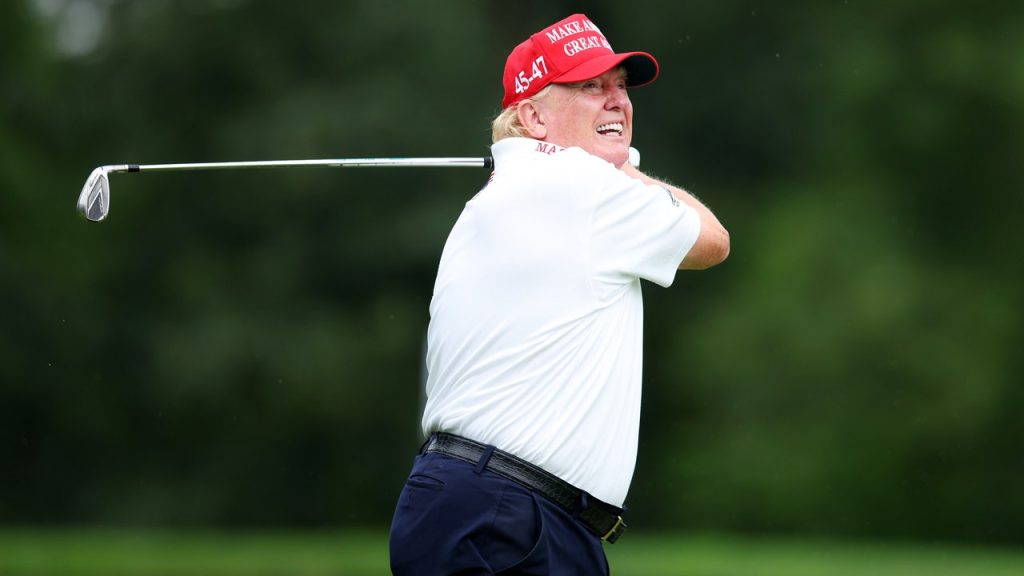The House Speaker election on Friday, October 20, 2023, was punctuated by behind-the-scenes maneuvering and presidential influence, culminating in Representative Mike Johnson securing the speakership despite initial setbacks. Representative Ralph Norman of South Carolina, initially opposed to Johnson’s candidacy, revealed that former President Donald Trump played a pivotal role in swaying his vote, even interrupting his golf game to advocate for Johnson. This intervention highlighted Trump’s continued engagement in Republican Party politics and his ability to influence key decisions within the House.
Norman’s account described multiple calls from Trump. The first, notably, occurred mid-golf game, showcasing Trump’s multitasking approach to political maneuvering. Trump emphasized Norman’s past support for Nikki Haley, seemingly using it as leverage to encourage support for Johnson, underscoring the importance of party unity in the speaker selection process. Norman, ultimately persuaded, confirmed his intention to vote for Johnson after these conversations. The anecdote provides a glimpse into Trump’s persuasive tactics and his hands-on approach to ensuring his preferred candidate secured the speakership.
Beyond Norman, Trump’s influence extended to Representative Keith Self of Texas, another initial Johnson opponent. Sources confirmed multiple phone calls between Trump and Self, described as “lively discussions,” suggesting a more involved exchange compared to Norman’s interaction. This reveals a broader effort by Trump to consolidate support for Johnson amongst wavering Republicans. The involvement of Representative Nancy Mace of South Carolina, who facilitated the calls between Trump, Self, and Norman, further underscored a coordinated effort to rally support behind Johnson. Mace’s role highlighted the strategic networking within the Republican ranks to secure the necessary votes for the speakership.
The initial vote tally indicated a potential roadblock for Johnson, with Self, Norman, and Representative Thomas Massie of Kentucky voting against him. This dissent threatened to derail Johnson’s bid and necessitate a second round of voting. However, the official vote count was delayed, allowing time for lobbying and negotiation. This pause proved crucial, giving House leaders the opportunity to consolidate support for Johnson and avoid a potentially protracted and divisive contest. The delay and subsequent conversations, including Trump’s interventions, effectively averted a second ballot, demonstrating the power of political persuasion and strategy in a closely contested election.
The eventual outcome, with Johnson securing the speakership in the first round, suggests the efficacy of Trump’s interventions. By personally contacting dissenting representatives, Trump effectively shifted the balance in Johnson’s favor, demonstrating his continued influence within the Republican Party. This success reinforces Trump’s role as a power broker, capable of swaying critical votes within the House even from outside of official political office. The incident highlights the complexities of internal party politics and the role of influential figures in shaping legislative outcomes.
This episode underscores the fluidity of political alliances and the importance of back-channel negotiations in securing leadership positions within Congress. The intervention of former President Trump, even from the golf course, proved decisive in rallying support for Mike Johnson and avoiding a potentially messy and protracted speaker election. The event provides a compelling example of how personal relationships, political maneuvering, and the influence of prominent figures can shape the course of legislative processes.

